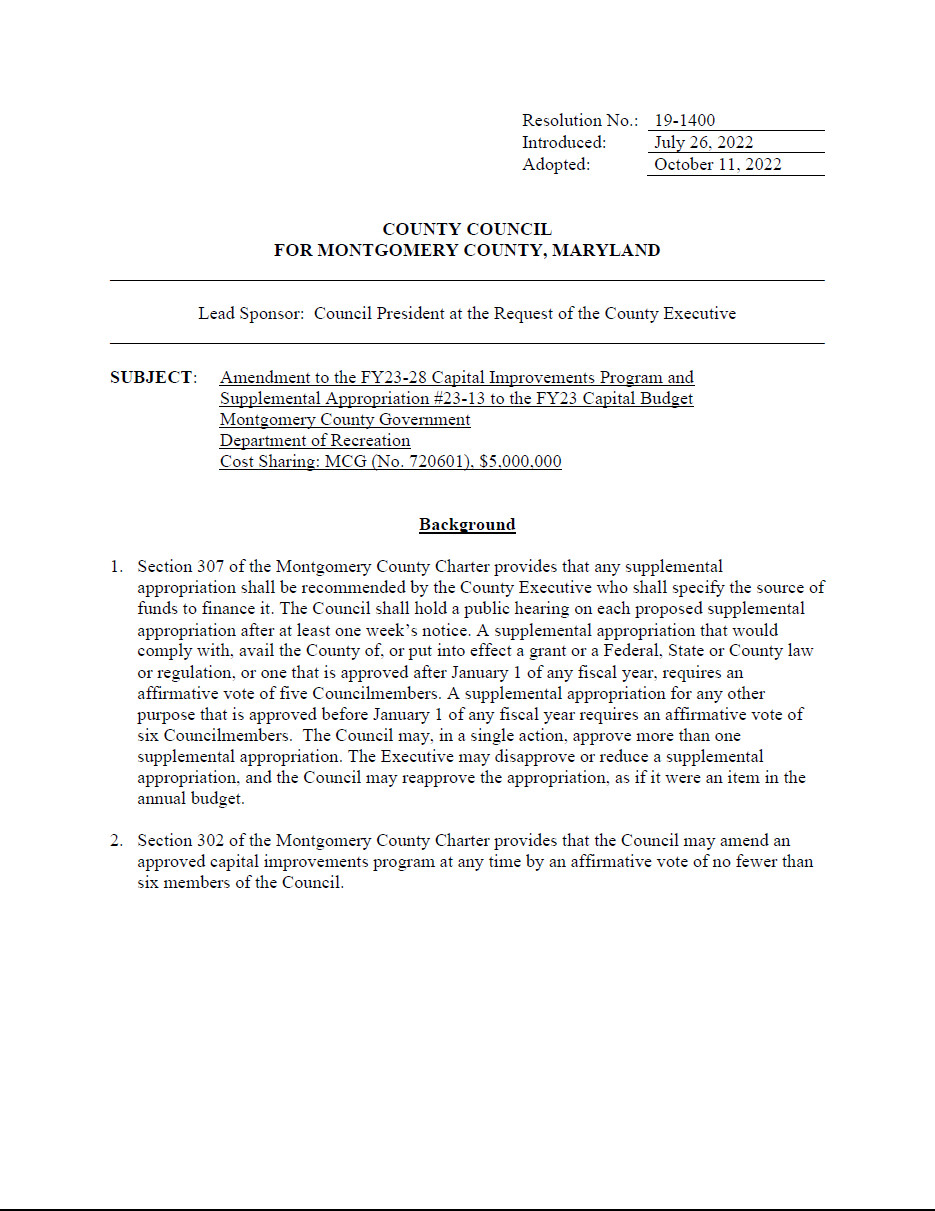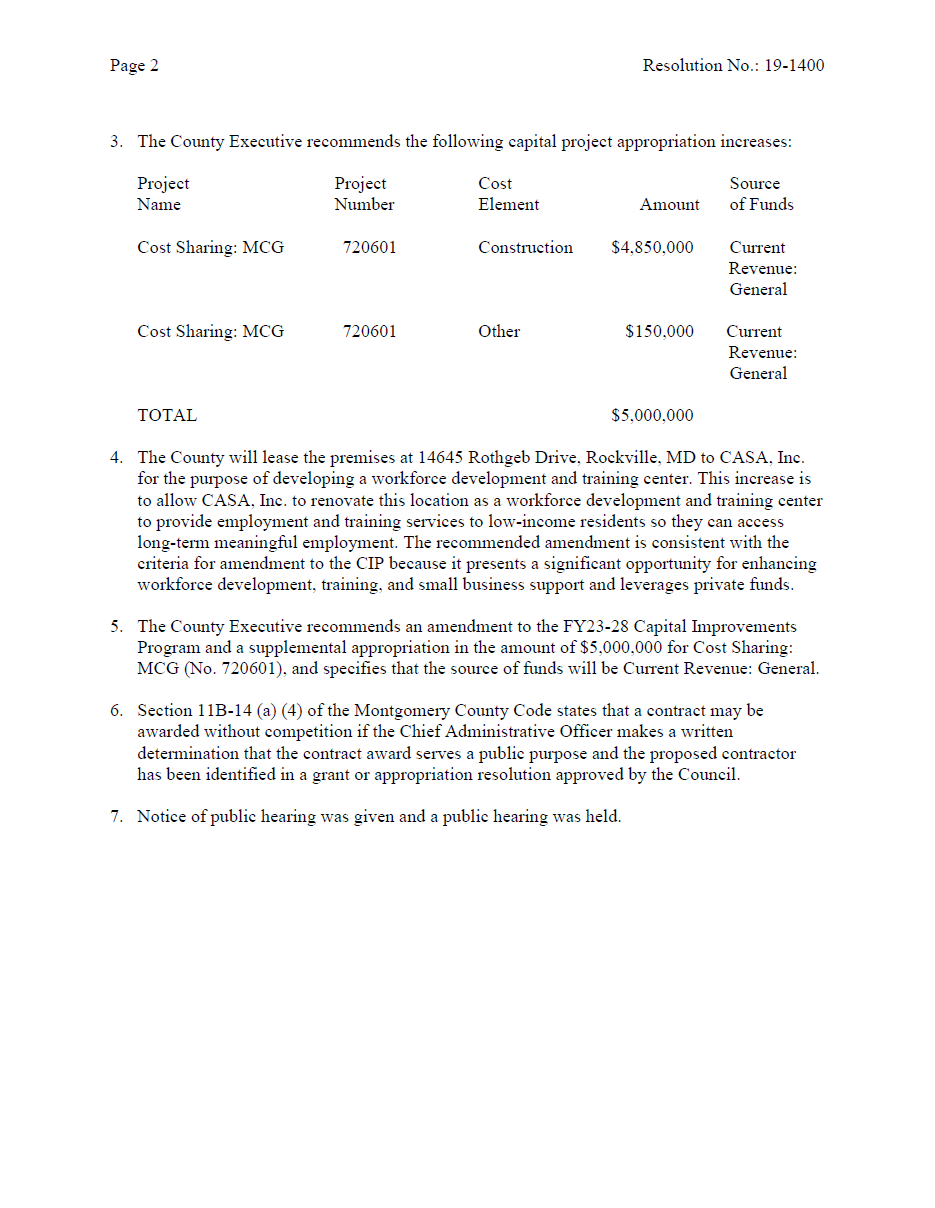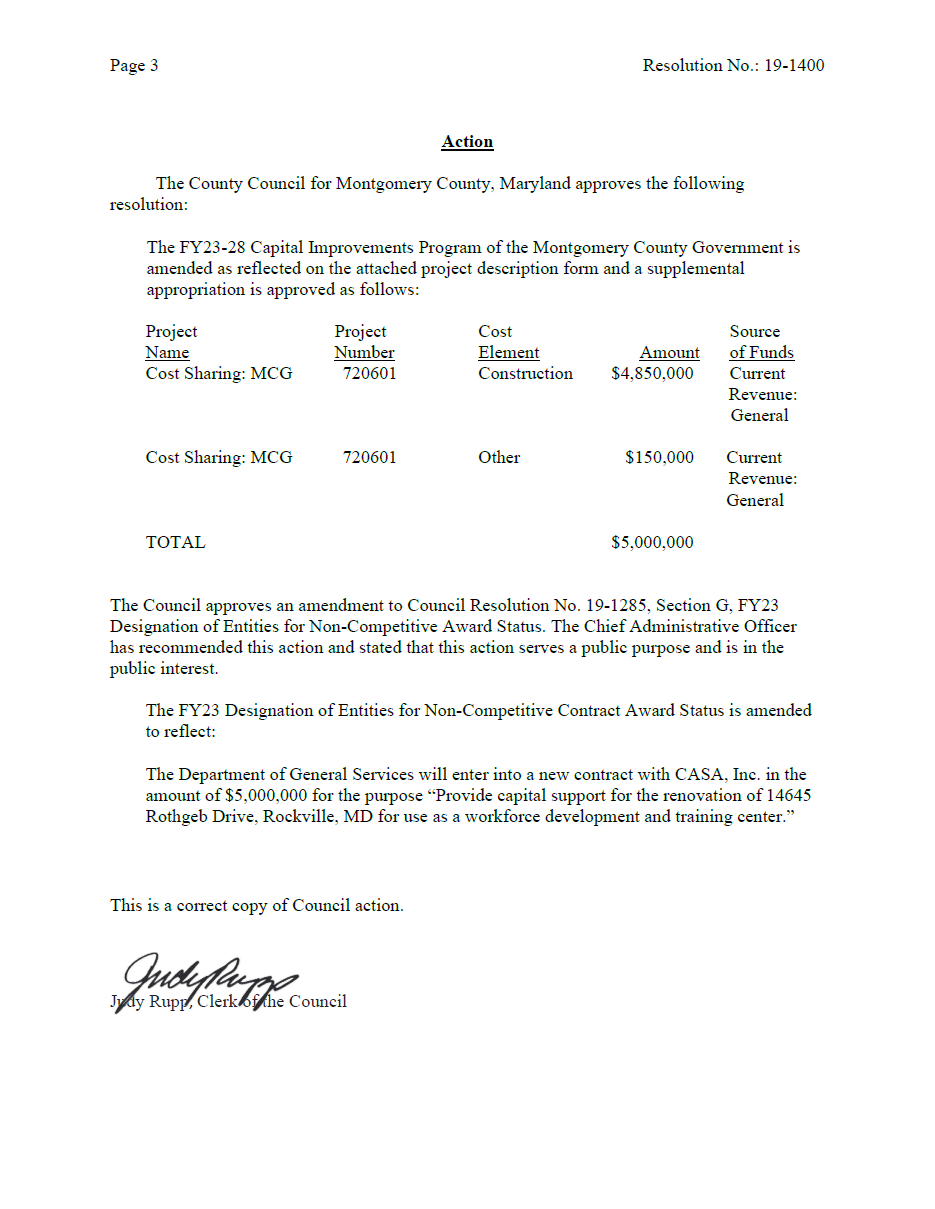By Adam Pagnucco.
“Audit.” It’s the word I hear the most now about CASA, more than “Israel,” “Hamas” or “Jews.” And now it looks like it could happen, at least at the state level.
CASA’s statements about Israel, which have been exhaustively covered here, opened a can of worms that have been squirming under the lid for months, if not years. The root problem is not the organization’s tweets about Israel and the Palestinians, which the group would like to get past. It’s the blurry line between tax dollars and advocacy.
CASA is a notable provider of services that no one, at least among Democratic elected officials, wants to discontinue. But it’s also an aggressive advocacy organization and it does that activity through both a 501(c)(3) and a 501(c)(4). Those are non-profit designations in the federal tax code which have some restrictions on lobbying and political activity. It also has a Super PAC. Right now, two questions are being asked in both Rockville and Annapolis:
Are tax dollars being used, directly or indirectly, for lobbying?
And are there any other non-profits who can provide CASA’s services who do not also engage in political advocacy?
Those questions may take different paths in the state capital and the county seat. On the county side, there is some interest in having the Office of Inspector General (OIG) audit CASA’s spending of county money. That’s not something that elected officials can force through – the OIG makes its own decisions about what issues it will investigate.
On the state side, the General Assembly has an Office of Legislative Audits (OLA) that regularly looks at state spending of many kinds. That includes procurements. It’s unclear as to how far the OLA can dig into a nonprofit’s use of funds, especially if they mix with private funds. For that matter, that lack of clarity may also apply to the county OIG.
That’s why two recent developments are so interesting. First, in its broad-ranging article on the issues associated with CASA, Maryland Matters mentions the possibility of audits. Their sources may be saying the same things my sources are (and may in fact be some of the same people). And second, the Maryland House of Delegates Republican Caucus has weighed in and specifically called for an audit. Republicans by themselves are not able to get that done, but if they are combined with enough Democrats (like MoCo’s state senators), it might actually happen. The Republicans’ statement is reprinted below.

Another dimension to this is budgetary. At the county level, the Montgomery County Council has approved many noncompetitive contract awards to CASA over the years. The $5 million capital item below, approved in October 2022 for the 99-year lease the county made with CASA on one of its buildings, is just one example.



Every member of the council believes that the services CASA provides are valuable, but now there is growing talk of whether it is the only vendor that can provide them. That discussion is occurring in the General Assembly too. It’s noteworthy that a constitutional amendment approved by voters in 2020 significantly expanded the General Assembly’s authority to reallocate line items in the state operating budget. It’s not clear whether there is a sustainable appetite to direct CASA’s public funding to other parties or at minimum require CASA to compete for contracts. But it is clear that there are avenues to do so – and lots of chatter about it.
CASA may have a chance to get past the current controversy depending on what it says and does going forward. (My sources can’t believe that more than a week has passed with no release of a formal statement.) But its business model will not change. It will continue taking tax dollars and flooding state and county hearing rooms with activists, and while it does so, elected officials will think, “Am I paying them to lobby me?” As long as that dynamic continues, there will be simmering unhappiness with the group which will be ready to erupt if – or perhaps when – future controversies arise.
